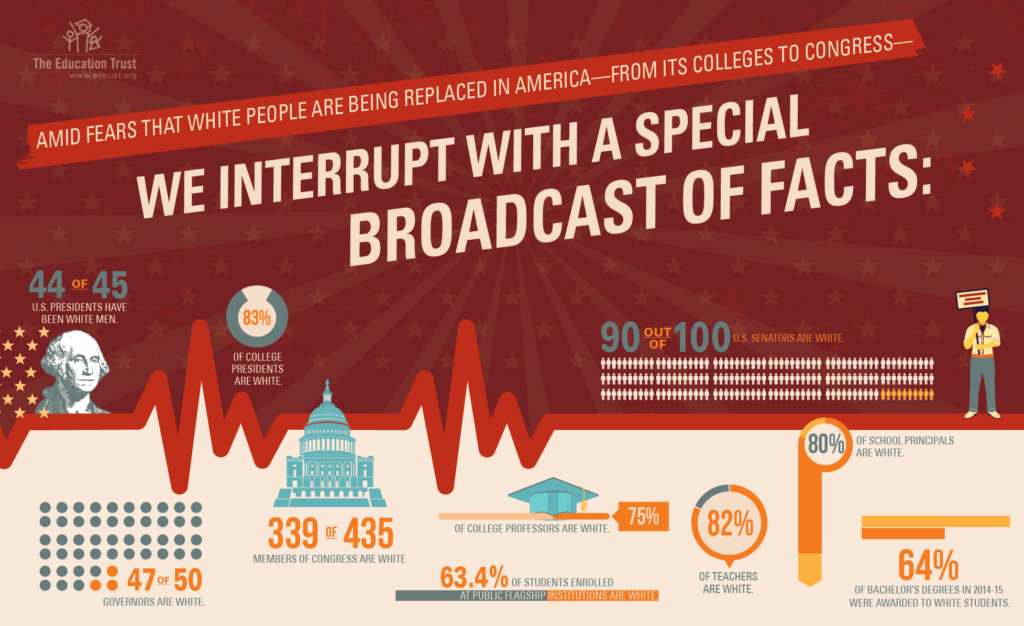On Charlottesville: Race Matters, But Facts Do Too
Deadly protests this weekend by torch-carrying White nationalists at the University of Virginia and in the city of Charlottesville, Va., serve as a terrible reminder to us all just how…

Deadly protests this weekend by torch-carrying White nationalists at the University of Virginia and in the city of Charlottesville, Va., serve as a terrible reminder to us all just how much race matters in the United States. When angry crowds of White Americans shout, “You will not replace us,” it begs the question. When were White Americans replaced, and if White Americans have been replaced, who were they replaced with?
At Ed Trust, we prefer to use evidence to inform our positions and our policy work. And, on this issue, the data are clear:
If White Americans have been “replaced,” it certainly hasn’t been in the halls of government or in institutions of higher education, cradles of leadership, power, and privilege in this country. And it hasn’t been by underrepresented groups. Still, despite being based on blatant inaccuracies, these types of racially charged assertions do create fear and uncertainty among vulnerable populations. On college campuses, racially charged assertions, and the racially charged events during which they occur, create a hostile climate for students of color, many of whom already face significant obstacles when they arrive.
Campus leaders must address racial incidents directly and denounce acts of hostility, intimidation, and racism on their campuses. They must ensure that vulnerable student populations feel safe and welcome. When students don’t feel safe, they don’t persist, they don’t succeed, and they don’t graduate. And if graduation is the goal, then a campus climate where all students feel welcome should also be the goal.
We live in a more diverse country than ever before, and America is projected to become even more racially and ethnically diverse in the coming decades. And the evidence on the value of that diversity is clear: Diverse campus environments have powerful benefits for students — including, and perhaps especially for, White students.
According to Katherine W. Phillips, professor of business at Columbia University who studies the value of diversity, “If you want to build teams or organizations capable of innovating, you need diversity. Diversity enhances creativity. It encourages the search for novel information and perspectives, leading to better decision-making and problem solving. Diversity can improve the bottom line of companies and lead to unfettered discoveries and breakthrough innovations. Even simply being exposed to diversity can change the way you think.”
College campuses can be a place to facilitate that change — environments where students can engage in healthy dialogue about difference. But while everyone doesn’t have to agree, they cannot deny the data. Race matters, but facts do too.
* Ed Trust analysis of IPEDS data
Photo credit: Thivierr